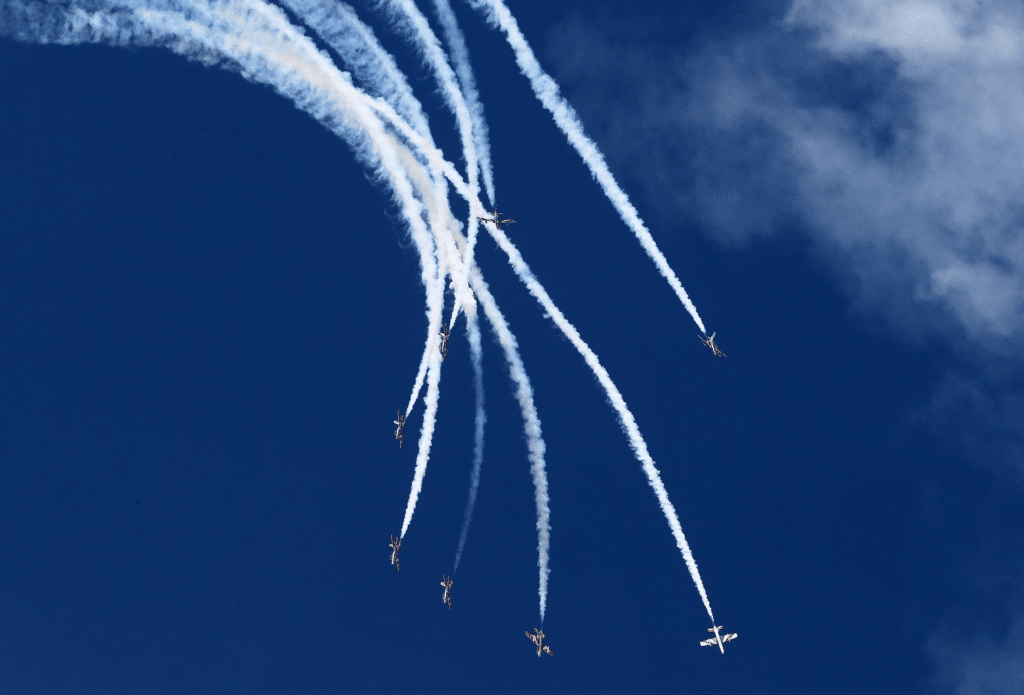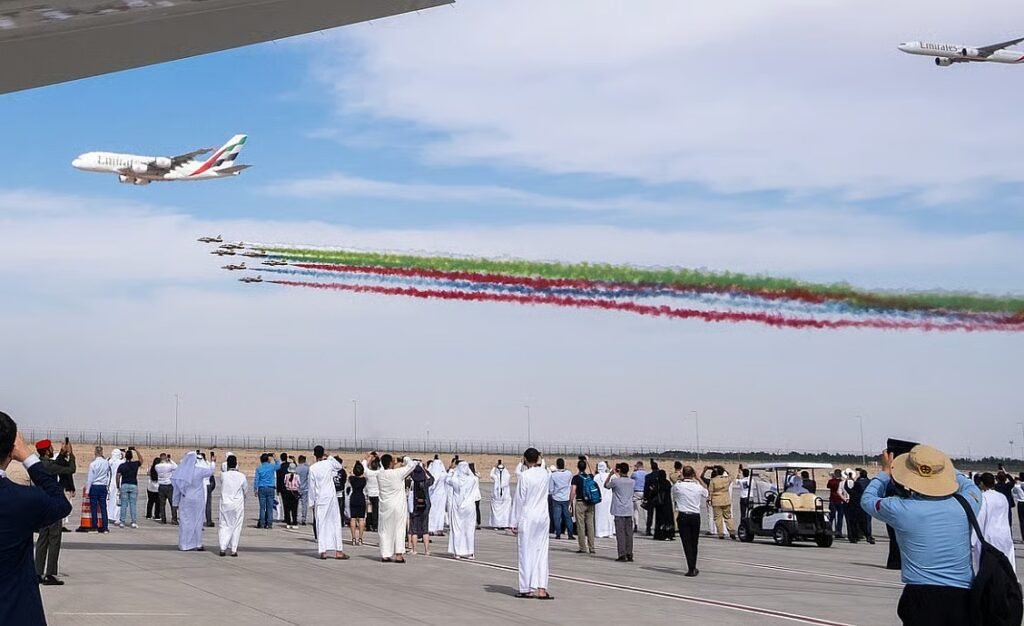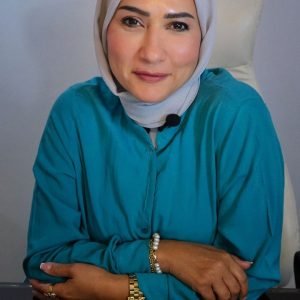In a significant turn of events, Israeli companies will not participate in Dubai Airshow 2025. The show’s organizers have confirmed that Israeli defense firms, in particular, will be excluded from exhibiting. This decision follows increasing regional tensions and a recent military strike that has sparked diplomatic outrage across several Gulf states. The move marks a major shift in regional business dynamics and highlights how political developments can directly influence international trade and technology exhibitions.
Understanding the Dubai Airshow
The Dubai Airshow is one of the world’s largest aviation and defense exhibitions, held every two years in the United Arab Emirates. It brings together aerospace manufacturers, defense contractors, and aviation technology firms from around the globe. The event is known for hosting billion-dollar deals and showcasing cutting-edge aircraft, drones, missiles, and advanced technologies.
In previous editions, Israeli companies like Israel Aerospace Industries (IAI) and Rafael participated, marking growing ties between Israel and Gulf nations following the Abraham Accords. Their presence symbolized a new era of cooperation in technology and defense. However, the upcoming 2025 edition will see a complete absence of Israeli exhibitors.

Why Israeli Companies Are Excluded
Official Confirmation
In October 2025, the show’s organizers publicly confirmed that Israeli companies will not be part of the Dubai Airshow 2025. The managing director of Informa, the event’s organizing body, stated that Israeli firms “won’t be participating.” The decision came as a surprise to many in the global aerospace sector, as Israel has been a consistent participant in international defense exhibitions.
Reports suggest that several Israeli defense firms received official communication denying them participation. The notification reportedly mentioned “security and administrative reasons,” but analysts believe the real motive lies in recent geopolitical developments.

Impact of Regional Tensions
The exclusion closely follows an Israeli military strike in Qatar, which drew widespread criticism across the Gulf region. Several Arab nations condemned the act, labeling it as a violation of sovereignty and regional stability. The United Arab Emirates, maintaining diplomatic balance, reportedly acted in solidarity with its neighbors by barring Israeli participation in the Airshow.
This move reflects the growing strain between Israel and Gulf countries, reversing some of the progress achieved through earlier normalization efforts. The decision is seen by many as a political message expressing disapproval of recent military actions and regional policies.
Security and Political Concerns
While organizers cited “security concerns,” industry insiders say the decision was influenced by both safety and political factors. Large international events like the Dubai Airshow attract thousands of visitors, including military delegations and officials, making security a top priority.
However, many observers believe the exclusion was more diplomatic than logistical. As tensions rise across the Middle East, the UAE is prioritizing stability and neutrality. Allowing Israeli defense firms to exhibit amid ongoing regional conflicts might have been viewed as a provocative act, potentially upsetting allies and participants from neighboring nations.
Reactions from Israel and the Defense Industry

Response from Israeli Officials
The Israeli Defense Ministry has acknowledged the decision but has refrained from issuing detailed comments. Local media in Israel expressed frustration over what they called a “politicization of trade and technology.” Some government sources reportedly believe that the ban was directly connected to Israel’s military actions in Qatar, viewing it as a symbolic punishment rather than a procedural matter.
Industry Reactions
Within the defense industry, reactions have been mixed. Israeli companies, known for their technological innovation in drones, missile defense, and surveillance, view the exclusion as a lost opportunity. Global defense analysts warn that politics interfering with international exhibitions could harm innovation and global collaboration.
Other exhibitors have also voiced concern that excluding firms on political grounds sets a precedent. They argue that airshows and trade fairs should remain neutral grounds for business and technology exchange, not instruments of political signaling.
Implications for the Dubai Airshow 2025
Impact on Defense Diversity
Israeli defense firms have traditionally been among the most advanced exhibitors, showcasing groundbreaking drone technology, radar systems, and cybersecurity tools. Their absence will undoubtedly reduce the diversity and competitiveness of the defense segment at the Dubai Airshow 2025.
The airshow, known for balancing commercial aviation with defense technology, will now lean more toward other global players like the U.S., France, and South Korea. While the event will still attract thousands of visitors, some experts believe the absence of Israeli exhibitors could affect the range of innovation on display.
Economic and Commercial Effects
In past editions, the Dubai Airshow has recorded more than $100 billion worth of contracts. Israeli companies have often played a small but strategic role in partnerships involving aerospace technology and unmanned systems. Their exclusion might redirect potential collaborations to European and Asian defense firms.
For Israel, this means missing a valuable opportunity to expand its defense exports in the Gulf region. For the UAE, the short-term impact may be minimal, but the long-term diplomatic message will resonate globally.
Diplomatic Message and Regional Solidarity
This decision reinforces the UAE’s alignment with broader Arab sentiment while maintaining its image as a global trade hub. The exclusion sends a clear political message without direct confrontation. By restricting Israeli participation, the UAE signals support for regional unity amid ongoing conflicts while avoiding more severe diplomatic fallout.
However, such a move also shows how global events are increasingly shaped by regional politics. As defense and security issues intertwine with diplomacy, business platforms like the Dubai Airshow are becoming reflections of international relations rather than purely commercial gatherings.
Global Context and Similar Incidents
The politicization of airshows and defense exhibitions is not new. Earlier in 2025, Israel faced similar challenges in Europe. At the Paris Airshow, several Israeli defense stands were reportedly shut down after public pressure over ongoing conflicts. In contrast, other international shows like Singapore allowed limited Israeli participation but under tight security and minimal publicity.
These developments indicate a shifting global attitude. Nations are becoming more cautious about hosting exhibitors from politically sensitive regions, especially when defense or military technology is involved. As a result, Israel may focus on friendly or neutral markets for future exhibitions, reducing its exposure in politically volatile regions.
What Lies Ahead

Possibility of Reversal
Although the organizers have confirmed the exclusion, diplomatic efforts could still influence the final outcome. Israel maintains trade and diplomatic relations with the UAE, and behind-the-scenes negotiations might allow for a limited or symbolic participation closer to the event. However, as of now, the decision stands firm.
New Partnerships and Strategies
Israeli companies are likely to redirect their focus to other international platforms, including trade shows in Asia, Europe, and the United States. They may also explore digital exhibitions or bilateral agreements to showcase technology without depending on politically sensitive events.
Long-Term Impact
The exclusion of Israeli companies from Dubai Airshow 2025 could have lasting implications. It might discourage other politically sensitive nations from exhibiting and influence how future trade shows balance diplomacy with commerce. Moreover, it reflects the fragile nature of normalization efforts between Israel and some Arab nations.
Conclusion
The decision that Israeli companies will not participate in Dubai Airshow 2025 is a defining moment in regional diplomacy and global defense trade. It highlights how political and military events can influence even the most commercially driven platforms.
While the UAE seeks to maintain regional balance and peace, the move underscores the challenges of separating business from politics in a world where both are deeply interconnected. The absence of Israeli exhibitors will reshape the tone and content of the 2025 show, reminding the world that international collaboration often hinges on more than just innovation—it depends on trust, stability, and diplomatic harmony.
Do follow UAE Stories on Instagram
Read Next – TEDx Dubai Licence Revoked After Event Cancelled Amid $25,000 Speaker Fees












